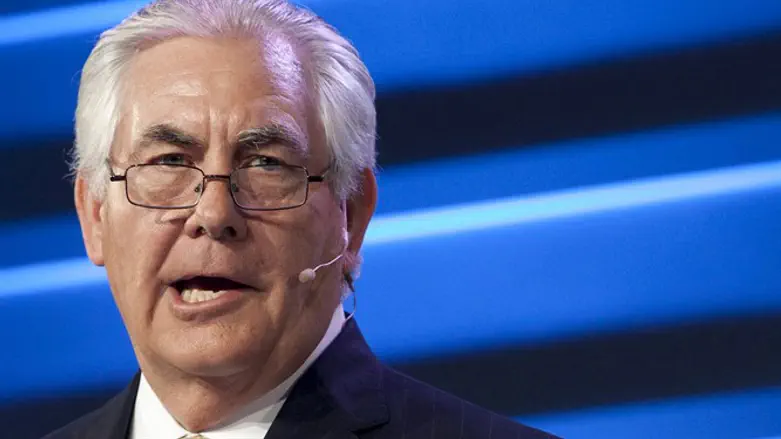
The Senate Foreign Relations Committee on Monday voted in favor of sending the nomination of former ExxonMobil chief executive Rex Tillerson as Secretary of State to the full Senate with a recommendation of approval.
The vote was 11-10, according to CNN.
Earlier on Monday, Senator Marco Rubio (R-FL) announced that he would support Tillerson, removing the last significant stumbling block to the nomination.
A similar announcement came on Sunday from Senators John McCain (R-AZ) and Lindsey Graham (R-SC), who confirmed they would vote in favor of Tillerson after previously expressing concern over his ties to Russia.
A final confirmation vote on the Senate floor is expected next week, leadership aides from each party told CNN.
During the vote, Rubio said that he still had reservations about Tillerson, but looked favorably on Tillerson's support for NATO and his recognition that "Russia's claims on Crimea are illegitimate."
He came around to supporting the nominee because "given the uncertainty that exists both at home and abroad about the direction of our foreign policy, it would be against our national interests to have this confirmation unnecessarily delayed or embroiled in controversy," Rubio said.
The Democrats, who voted unanimously against Tillerson, catalogued a series of concerns, including his stance on Russia, human rights, and how long he would recuse himself from decisions that could affect Exxon, according to CNN.
During his confirmation hearing, Tillerson had faced a grilling about his close ties to Russia and whether his business experience could translate into diplomatic skills. His answers about human rights riled both Democrats and Republicans like Rubio, who told the businessman in his confirmation hearing that U.S. foreign policy needs a "moral clarity" he wasn't hearing.
At that hearing, Tillerson expressed support for Israel while blasting the Obama administration for its attitude toward the Jewish state, particularly its decision not to veto UN Security Council Resolution 2334, which criticized Israeli construction in Judea, Samaria and Gaza.
Tillerson told the Senate Foreign Relations Committee the UN resolution was “not helpful” and “undermines” the conditions for peace talks to continue.
He also described then-Secretary of State John Kerry’s subsequent speech criticizing Israel as “quite troubling.”
Tillerson stressed the importance of the United States recommitting to its alliance with Israel, which he said “is, was and always has been our most important ally” in the Middle East.